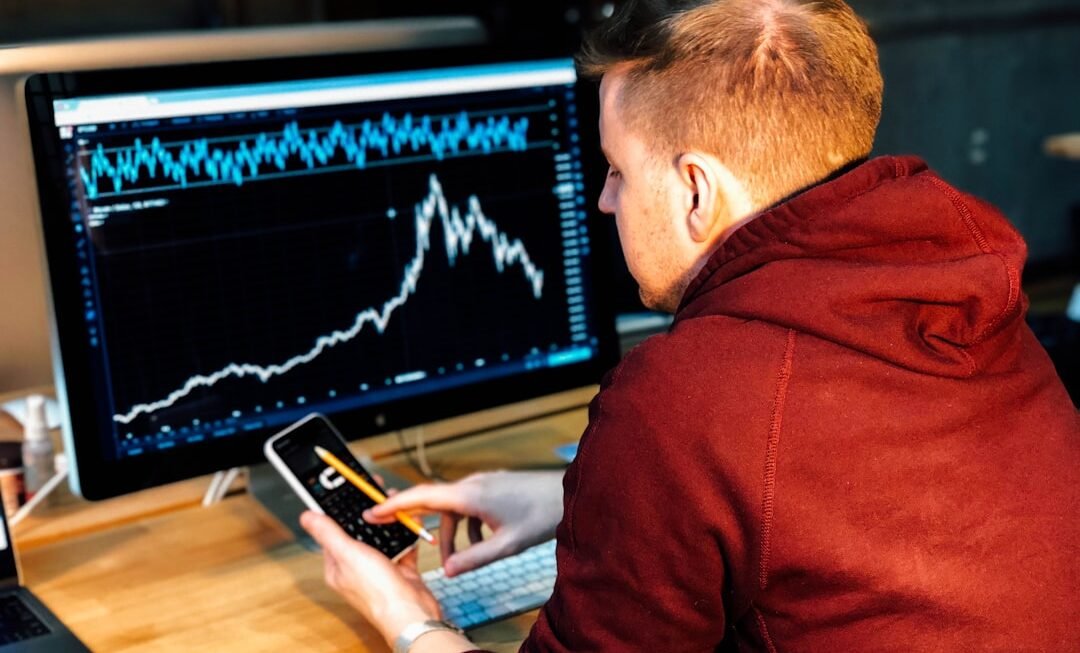In the realm of finance and investment, the stock exchange simulator serves as a vital tool for both novice and experienced traders alike. This innovative platform allows individuals to engage in simulated trading without the financial risks associated with real-world investments. By providing a virtual environment that mimics actual market conditions, stock exchange simulators empower users to practice their trading skills, experiment with various strategies, and gain a deeper understanding of market dynamics.
The allure of these simulators lies in their ability to offer a safe space for learning, where mistakes do not result in monetary loss but instead serve as valuable lessons for future endeavors. The significance of stock exchange simulators extends beyond mere practice; they also play a crucial role in demystifying the complexities of the stock market. For beginners, the prospect of entering the world of trading can be daunting, filled with jargon and intricate concepts that may seem overwhelming.
However, by utilizing a simulator, individuals can familiarize themselves with essential trading terminologies, understand how to navigate trading platforms, and develop a sense of confidence in their decision-making abilities. As they engage with the simulator, users can cultivate a more profound appreciation for the intricacies of stock trading, ultimately preparing them for real-world investment opportunities.
Understanding the Basics of Stock Trading
Understanding the Basics of Stock Trading
To fully appreciate the benefits of a stock exchange simulator, it is essential to grasp the fundamental principles of stock trading. At its core, stock trading involves buying and selling shares of publicly traded companies with the aim of generating profit. Investors typically purchase stocks at a lower price and sell them at a higher price, capitalizing on market fluctuations.
Key Factors Influencing Stock Trading
This process is influenced by various factors, including company performance, economic indicators, and investor sentiment. Understanding these elements is crucial for anyone looking to navigate the stock market successfully. Moreover, stock trading is not merely about making quick profits; it requires a strategic approach that encompasses research, analysis, and risk management.
Developing a Disciplined Trading Mindset
Traders must be adept at interpreting financial statements, evaluating market trends, and recognizing potential investment opportunities. Additionally, they must be aware of the psychological aspects of trading, as emotions can significantly impact decision-making. By comprehending these foundational concepts, individuals can leverage the capabilities of a stock exchange simulator to refine their skills and develop a more disciplined trading mindset.
Using the Simulator to Practice Trading Strategies
One of the most compelling features of a stock exchange simulator is its ability to facilitate the practice of various trading strategies without any financial repercussions. Users can experiment with different approaches, such as day trading, swing trading, or long-term investing, allowing them to discover which methods align best with their personal goals and risk tolerance. The simulator provides real-time data and analytics, enabling traders to test their strategies under conditions that closely resemble actual market scenarios.
This hands-on experience is invaluable for honing one’s skills and building confidence in executing trades. Additionally, the simulator allows users to track their performance over time, offering insights into what works and what does not. By analyzing their successes and failures within the simulated environment, traders can refine their strategies and make informed adjustments before committing real capital.
This iterative process fosters a deeper understanding of market behavior and equips individuals with the tools necessary to navigate the complexities of stock trading effectively. Ultimately, the ability to practice and iterate on various strategies within a risk-free environment is one of the most significant advantages offered by stock exchange simulators.
Analyzing Market Trends and Patterns
A critical aspect of successful trading lies in the ability to analyze market trends and patterns effectively. Stock exchange simulators provide users with access to a wealth of historical data and analytical tools that can aid in identifying these trends. By studying price movements over time, traders can discern patterns that may indicate future price behavior.
For instance, recognizing bullish or bearish trends can inform decisions about when to enter or exit positions. The simulator’s analytical capabilities allow users to experiment with different indicators and charting techniques, enhancing their ability to make data-driven decisions. Furthermore, understanding market trends is not solely about recognizing patterns; it also involves interpreting broader economic indicators that can influence stock prices.
Factors such as interest rates, inflation rates, and geopolitical events can all impact market sentiment and drive price fluctuations. A stock exchange simulator enables users to observe how these external factors affect their simulated portfolios in real-time. By integrating this knowledge into their trading strategies, individuals can develop a more comprehensive approach to investing that considers both technical analysis and macroeconomic influences.
Managing Risk and Building a Diversified Portfolio
Risk management is an essential component of successful trading that cannot be overlooked. A stock exchange simulator provides an excellent platform for users to explore various risk management techniques without facing real financial consequences. Traders can experiment with position sizing, stop-loss orders, and diversification strategies to understand how these elements contribute to overall portfolio stability.
By simulating different scenarios, users can learn how to mitigate potential losses while maximizing gains, ultimately fostering a more disciplined approach to trading. Building a diversified portfolio is another critical aspect of risk management that traders can practice within a simulator. Diversification involves spreading investments across various asset classes or sectors to reduce exposure to any single investment’s volatility.
The simulator allows users to create hypothetical portfolios that include stocks from different industries or even other asset types like bonds or commodities. This hands-on experience helps traders appreciate the importance of diversification in achieving long-term financial goals while minimizing risk.
Utilizing Technical and Fundamental Analysis
To navigate the complexities of stock trading effectively, individuals must become proficient in both technical and fundamental analysis. Technical analysis focuses on historical price movements and trading volume to forecast future price behavior through charts and indicators. A stock exchange simulator equips users with the tools necessary to apply technical analysis in real-time scenarios, allowing them to experiment with various indicators such as moving averages or relative strength index (RSI).
By practicing these techniques within a simulated environment, traders can develop their analytical skills and gain confidence in making informed decisions based on technical data. On the other hand, fundamental analysis involves evaluating a company’s financial health by examining its earnings reports, balance sheets, and overall market position. This approach requires an understanding of key financial metrics such as price-to-earnings (P/E) ratios or earnings per share (EPS).
A stock exchange simulator allows users to access financial data for various companies and practice conducting fundamental analyses without any financial risk. By combining both technical and fundamental analysis skills within the simulator, traders can create well-rounded investment strategies that consider both market trends and company performance.
Testing Different Trading Styles and Approaches
The world of stock trading encompasses a wide array of styles and approaches that cater to different personalities and risk appetites. From aggressive day trading strategies that capitalize on short-term price movements to conservative buy-and-hold tactics focused on long-term growth, each style has its unique advantages and challenges. A stock exchange simulator provides an ideal platform for users to test various trading styles without the pressure of real-world consequences.
By experimenting with different approaches, traders can identify which style resonates most with their individual preferences and financial goals. Moreover, testing different trading styles within a simulator allows users to adapt their strategies based on changing market conditions. For instance, during periods of high volatility, day trading may yield significant returns for those who thrive on quick decision-making.
Conversely, in more stable markets, long-term investing may prove more beneficial for those seeking steady growth over time. The flexibility offered by simulators enables traders to pivot between styles as needed while gaining valuable insights into their own strengths and weaknesses as investors.
Advantages of Using a Stock Exchange Simulator for Learning and Development
The advantages of utilizing a stock exchange simulator extend far beyond mere practice; they encompass a comprehensive learning experience that fosters personal growth and development in the realm of investing. One significant benefit is the opportunity for users to learn from their mistakes without incurring financial losses. In traditional trading environments, errors can lead to substantial monetary setbacks; however, simulators allow individuals to experiment freely while gaining insights into what went wrong and how to improve in future scenarios.
Additionally, stock exchange simulators promote continuous learning by providing access to educational resources such as tutorials, webinars, and community forums where users can share experiences and strategies. This collaborative environment encourages knowledge sharing among traders at all levels of expertise, fostering a sense of community that enhances the overall learning experience. As individuals engage with these resources while practicing in the simulator, they cultivate not only their technical skills but also their confidence as informed investors ready to tackle real-world challenges when they arise.
In conclusion, stock exchange simulators represent an invaluable resource for anyone looking to delve into the world of trading. By offering a risk-free environment for practicing strategies, analyzing market trends, managing risk, and testing various approaches, these simulators empower individuals to develop their skills comprehensively. As they navigate this virtual landscape filled with opportunities for learning and growth, traders can emerge better equipped for success in the dynamic world of stock trading.
FAQs
What is a stock exchange simulator?
A stock exchange simulator is a computer program or mobile app that allows users to practice trading stocks in a simulated environment. It uses real-time market data to create a virtual stock market where users can buy and sell stocks without using real money.
How does a stock exchange simulator work?
A stock exchange simulator works by providing users with a virtual cash balance that they can use to buy and sell stocks. The simulator uses real-time market data to simulate the performance of stocks and allows users to track their investments and see how they would have performed in a real market.
What are the benefits of using a stock exchange simulator?
Using a stock exchange simulator allows users to practice trading stocks without risking real money. It can help users learn about the stock market, develop trading strategies, and gain experience before investing real money in the market.
Are stock exchange simulators realistic?
Stock exchange simulators strive to be as realistic as possible by using real-time market data and simulating the performance of stocks in a virtual environment. However, they may not fully capture the emotional and psychological aspects of real trading.
Are stock exchange simulators suitable for beginners?
Yes, stock exchange simulators are suitable for beginners as they provide a risk-free way to learn about the stock market and practice trading stocks. They can help beginners gain confidence and experience before entering the real market.
Can I use a stock exchange simulator to learn about different investment strategies?
Yes, stock exchange simulators can be used to learn about different investment strategies such as value investing, growth investing, and day trading. Users can experiment with different strategies and see how they perform in a simulated environment.












